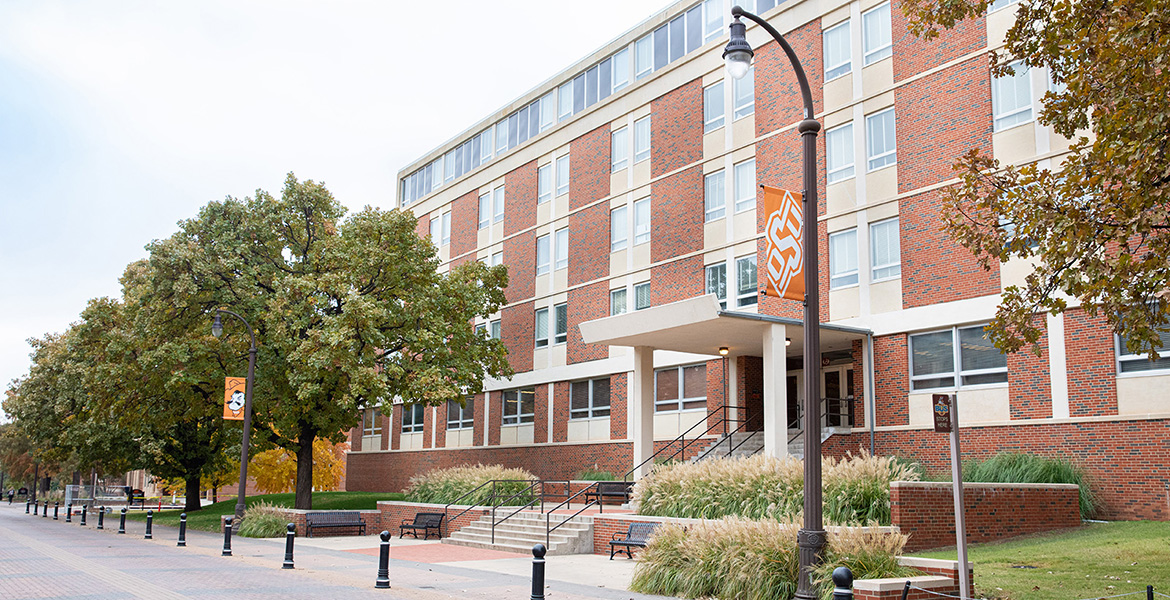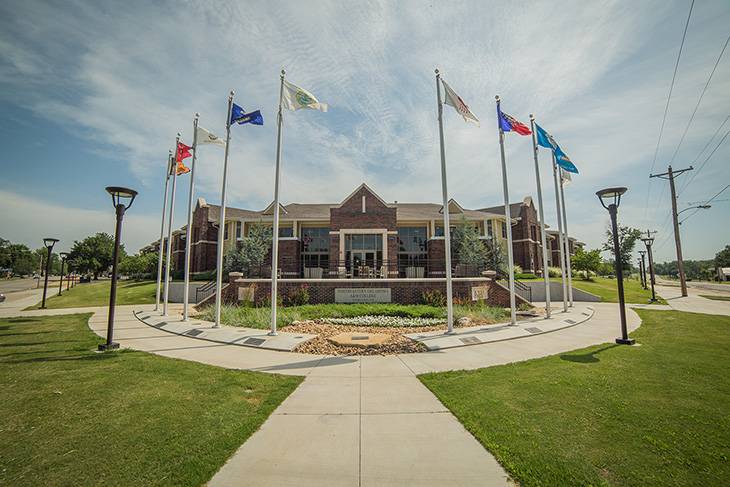
Oklahoma State, NEO, USDA team up to enhance Native American education opportunity
Monday, November 2, 2020
Oklahoma State University and Northeastern Oklahoma Agriculture and Mechanical College are collaborating to provide four Native American students with scholarships to complete dual undergraduate degrees in plant and soil sciences and entomology.
The collaborative scholarship effort is being funded by a $289,000 grant from the U.S. Department of Agriculture’s National Institute of Food and Agriculture as part of its New Beginning for Tribal Students program, which makes competitive grants available to provide support specifically targeted for students of America’s tribal nations.
Both Oklahoma State and NEO are well known for having strong Native American student populations, specifically in their agriculture programs, said Brian Arnall, a professor and OSU Extension precision crop nutrient management specialist with the university’s department of plant and soil sciences.
“It’s essential that we continue to provide more and better opportunities for Native American students. The NIFA grant provides needed resources that will allow us to reflect and support the diverse makeup of Oklahoma’s people,” said Arnall, who is serving as project director.
A specific goal of the project is to develop enhanced academic support for Native American students transferring from a two-year Native American-Serving Nontribal Institution such as NEO to four-year land-grant universities such as Oklahoma State. The hope is that graduates will bring to tribal nations the skills necessary to improve agrosecurity measures that safeguard food, agriculture and natural resources.

“Agrosecurity, health and science education are critical to the success of any group of people,” said Alisen Anderson, NEO agriculture instructor. “The disciplinary emphasis [on plant and soil sciences and entomology] will give these students a real-world, hands-on approach embracing vitally important aspects of the agricultural sector.”
Co-directors on the project include OSU Ferguson College of Agriculture faculty members Wyatt Hoback, Beatrix Haggard and Sergio Abit, and NEO faculty members Anderson and Mary Booth.
Studies indicate more college graduates with knowledge of modern agricultural production systems are needed, with demand for professionals possessing these skillsets far exceeding supply. The basic question underlying many academic agriculture programs is straightforward: How to best provide safe, high-quality food and fiber in sustainable ways that meet the needs of an ever-growing world population on a finite amount of available land?
“There is no future without a safe and available supply of food and fiber,” Arnall said. “To accomplish that, every generation needs an influx of young people who can think critically and solve issues and concerns relative to plants and animals.”
The OSU Ferguson College of Agriculture is part of the university’s Division of Agricultural Sciences and Natural Resources, as are two state agencies: OSU Extension and OSU Ag Research.
MEDIA CONTACT: Donald Stotts | Agricultural Communications Services | 405-744-4079 | donald.stotts@okstate.edu
